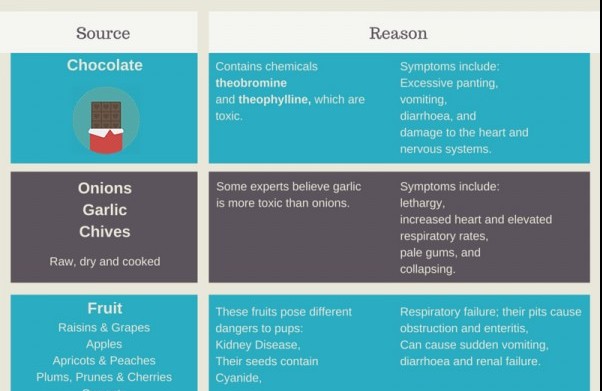It’s the time of year when it’s getting cold. Really cold. Naturally, with cooler temperatures us humans will reach for the biggest jumper we can.
Luckily for our four-legged friends, they’re already covered in a coat of fur (well, our Chinese Crested buddies are excluded from this!), so don’t feel the cold quite the same way us humans do.
It’s often hard to know the difference between shivering (due to the cold) or trembling (for other reasons).
We look at some of the causes for dogs trembling and what you can do if your dog won’t stop shaking.
My dog won’t stop shaking – what does this mean?
It’s important to know that a shivering dog doesn’t just mean he’s cold. Dogs tremble for many different reasons. It could be any one of the following:
The cold

Know your dog’s temperature tolerance levels. Source
Dog breeds that feel the cold weather
Even with their thick fur coats, some dogs are more prone to feeling the cold than others. As a rule of thumb, dog breeds with short hair and/ or no undercoats are affected by the cold weather the most.
Dog breeds including:
- Whippets,
- Greyhounds,
- Italian Greyhounds,
- Chinese Crested,
- French Bulldogs,
- Yorkshire Terriers,
- Chihuahuas, and
- Pugs.
Don’t forget that elderly dogs, puppies and pups with health problems will also be more susceptible to feeling the cold, as will shorter dogs such as Dachshunds, whose little tummies may drag as they walk over ice or through snow.
Temperature tolerance varies in dog breeds too, so what might be cold for one Yorkie, may not be as cold for another. It’s important to know your dog’s temperature toleration levels.
Stress
Stress and anxiety can cause your dog to shake uncontrollably. Stress may be caused from fireworks and other loud, sudden noises such as a car backfiring. Dogs who aren’t fans of taking a trip in a car may also tremble. This can be as a result of a traumatic experience from the past.
The best thing you can do is keep your dog calm and reassure him. Talking in a calm, soft tone and knowing the best ways to pet your dog can help.
Poisoning
Symptoms of poisoning can vary greatly. Xylitol, the artificial sweetener found in some peanut butters, chewing gum and many other unsuspecting foods (find a comprehensive list here), is extremely toxic to dogs. Ingesting xylitol can end fatally; even with a minimum amount consumed.
Other poisonous foods include chocolate and caffeine.
If you suspect your dog’s been poisoned:
- Stay calm.
- Remove your dog from the source of poisoning if you know what’s caused it.
- Seek emergency veterinary advice immediately.
Ageing
Senior dogs are prone to suffer from conditions like Canine Cognitive Dysfunction (CCD), which causes shaking and trembling. It’s an unfortunate reality that, like us humans, our best friends also grow old. Whilst there’s no definitive way to halt the ageing process, we can speak to veterinary professionals about helping to alleviate ageing symptoms with focussed treatments and therapies.

Beautiful old Pug. Source
Kidney Function
Tremors and episodes of shivering are also symptoms of kidney failure.
Other symptoms to look out for include:
- Shaking,
- Seizures,
- Disorientation,
- Slowness of breathing,
- Vomiting,
- Incontinence,
- Anaemia,
- Depression,
- Loss of coordination and balance,
- Lethargy and tiredness,
- Pale, dry gums,
- Bloodshot eyes,
- Increase in thirst, but still dehydrated,
- Loss of appetite,
- Weight loss,
- Dull coat,
- Increase in coat shedding, and
- Uremia – a distinct ammonia smell on the breath caused by the build up of bodily waste products.
If your pup’s showing these end-stage kidney failure symptoms, we recommend you seek veterinary advice immediately.
Distemper
Distemper is a highly contagious viral disease that is both airborne and transmitted through bodily secretions.
Distemper can affect the respiratory and intestinal tracts, brain, eyes and, in some cases, skin.
You can prevent your pup from developing Distemper by ensuring your dog is fully vaccinated.
Symptoms of Distemper include:
- Shaking,
- Coughing (some dogs are often misdiagnosed as having Kennel Cough),
- Diarrhoea,
- Seizures,
- Vomiting,
- Fever, and
- Nasal and eye discharge.
If your dog won’t stop shaking and you suspect your dog’s got Distemper, we recommend you seek veterinary advice immediately.

Make sure you know the symptoms of Distemper. Source
Generalised Tremor Syndrome (GTS)
Also known as White Dog Shaker Syndrome or Steroid Responsive Tremor Syndrome, GTS was initially recognised in smaller, white dog breeds such as Maltese.
It’s important to note, that despite its name, GTS can affect dogs of any size and colour.
Dogs suffering from GTS have tremors and shiver so bad they can find it hard to stand and walk properly. It’s not known fully what causes it, though many experts believe it’s the result of cerebellum swelling, a viral infection or an internal attack on the immune system.
GTS symptoms include:
- Shaking,
- Problems walking,
- Bad coordination,
- Seizures,
- Tilting of the head, and
- Random eye movement.
If your dog won’t stop shaking and you suspect he’s got GTS, we recommend you seek veterinary advice immediately.

Any dog can suffer from GTS, not just the Maltese breed.
Addison’s Disease
Also known as Hypoadrenocorticism, this disease is caused from a hormonal deficiency in the adrenal glands.
While the disease is relatively rare in dogs, it may be more prominent in
- Portuguese Water Dogs,
- Rottweilers,
- Westies,
- Bearded Collies,
- Poodles, and
- Wheaten Terriers.
Symptoms of Addison’s Disease include:
- Shaking,
- Weight loss,
- Diarrhoea,
- Dehydration,
- Depression,
- Blood in stools,
- Alopecia,
- Pains in the abdominal area, and
- Lethargy.
If your dog’s shaking and you suspect he’s got Addison’s Disease, we recommend you seek veterinary advice immediately to get treatment.
Learned behaviour
We sometimes don’t give dogs the credit they deserve. Some intelligent dogs can learn to shiver and shake knowing they’ll get a loving, warm hug from their human.
Initially this can seem cute, however, if you don’t nip the behaviour in the bud, it can easily get out of hand. If you’re already past the stage of no return with this behaviour, we recommend you contact a qualified dog trainer for assistance.
Overexcitement
Dogs are happy to see us. That’s one of the many reasons why we love them! Some dogs are so overexcited they bark, shake and some may even urinate.
You can work on training techniques to curb this behaviour by keeping your welcome as low key as possible.
Don’t forget to educate friends and family members with this advice by sharing this article on Facebook and Twitter.

